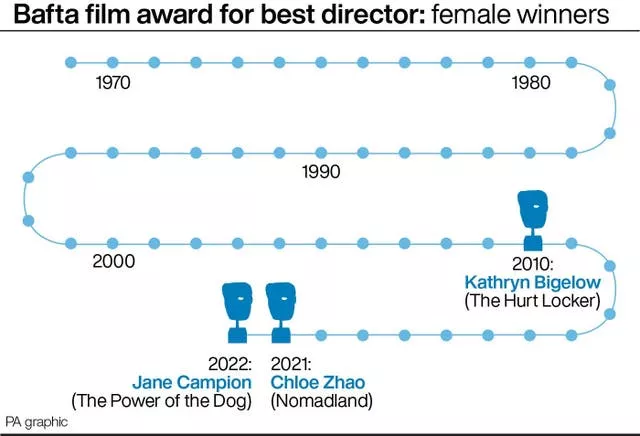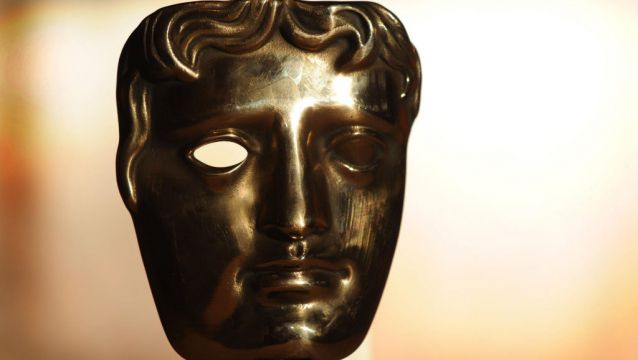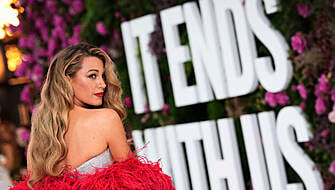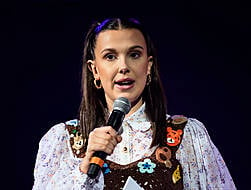This year’s Bafta film awards delivered slightly more misses than milestones when it came to diversity and representation.
– The wait goes on for a non-white best actress
Of the “big four” acting categories at the Bafta film awards, only one has never been won by a non-white performer: best actress.
There were six people nominated in the category this year. Five were white and one was not: Tessa Thompson, for the film Passing. The award went to Joanna Scanlan for her performance in After Love. As such, the wait goes on for history’s first winner of the best actress award from an ethnic minority background.
– Third ever female winner of best director
Jane Campion was named best director for her tense Western drama The Power Of The Dog, becoming only the third women to receive the award.
Her success also delivers the first back-to-back wins in this category by women, coming a year after Chloe Zhao’s victory with the film Nomadland. The first woman to win the Bafta for best director was Kathryn Bigelow in 2010, for The Hurt Locker.

– Cinematography remains a men-only zone
Ari Wegner this year became the first woman in the history of the Baftas to be nominated for best cinematography, for her work on The Power Of The Dog. But despite being tipped as one of the frontrunners, she lost out to fellow Australian Greig Fraser, who shot the sci-fi epic Dune.
It means the list of winners of the cinematography Bafta is still a men-only zone. Wegner has another chance to make history at the Academy Awards at the end of this month, where she could become the first woman to win the Oscar for best cinematography.
– Two of the ‘big four’ went to non-white performers
Will Smith won best actor for King Richard, while Ariana DeBose was named best supporting actress for West Side Story.
It is the first time in 15 years that these two particular awards have gone to non-white performers at the same Bafta ceremony. The last occasion was in 2007, when Forest Whitaker won best actor for The Last King Of Scotland and Jennifer Hudson won best supporting actress for Dreamgirls.
There has yet to be a Bafta ceremony where more than two of any of the four main acting awards have been given to non-white performers.
– Little room for non-US and non-British winners
Actors of Norwegian, Irish, Australian and Ethiopian backgrounds were all nominated for awards at this year’s Baftas, but in the end the honours went to US and British talent.
The awards for best documentary, animated film and adapted screenplay also went to Americans, though nominees in these categories included representatives from countries including Canada, Denmark, Japan and New Zealand.
The judges did look further afield for other awards, however: best original score was won by the German composer Hans Zimmer for the film Dune, while best production design went to a joint Canadian and Hungarian team, also for Dune.







